As we age, our bodies start acting a little differently—sometimes like gadgets that only work if you coax them just right. While it may not be that dramatic, the changes in how we process nutrition can be sneaky. Vitamins, which play starring roles in everything from immune strength to bone health, can become elusive in our later years. Deficiencies often creep in, bringing with them fatigue, weakened immunity, mood swings, and other health challenges.
The good news? By understanding which vitamins are most at risk, older adults can take proactive steps to protect their health.

In this guide, we’ll explore the most common vitamin deficiencies in seniors, why they happen, and how to prevent them. We’ll also tackle frequently asked questions like: What is the most common vitamin deficiency in the elderly? Which vitamin deficiency causes itchy skin? And what’s the most important vitamin for seniors?
Why Are Vitamin Deficiencies Common in Older Adults?
Before diving into specific vitamins, it’s important to understand why deficiencies are so prevalent in seniors. Several factors play a role:
Reduced Appetite & Dietary Intake – Appetite can wane with age due to dental issues, changes in taste, medications, or lower activity levels.
Digestive Changes – Stomach acid production decreases, limiting absorption of key nutrients like Vitamin B12.
Medications – Drugs such as proton pump inhibitors, metformin, and diuretics interfere with absorption.
Limited Sunlight Exposure – Seniors often spend less time outdoors, reducing Vitamin D production.
Chronic Health Conditions – Illnesses like diabetes, kidney disease, or gastrointestinal issues can disrupt nutrient metabolism.
The Most Common Vitamin Deficiencies in Older Adults
1. Vitamin B12 (Cobalamin)
What is the most common vitamin deficiency in the elderly? The answer is Vitamin B12 deficiency.
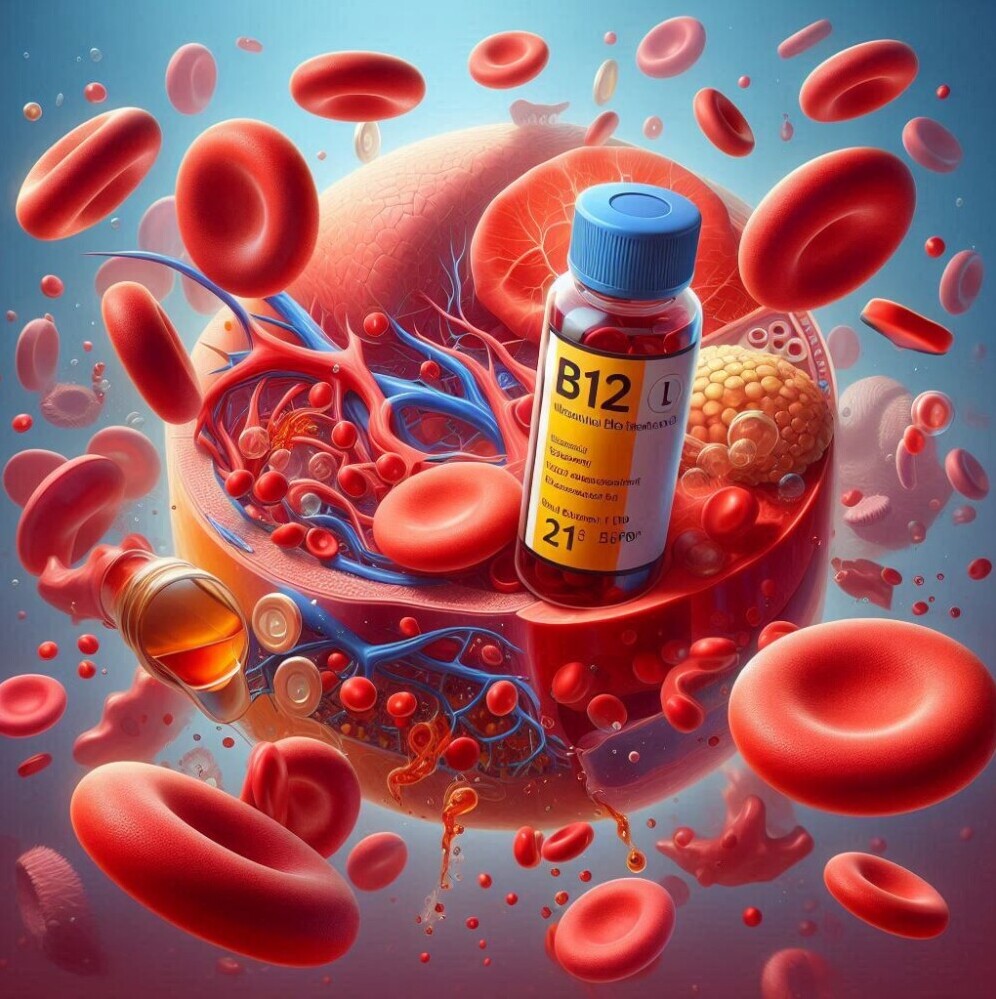
Vitamin B12 is a bit of a stealth operator in our bodies, quietly ensuring our nerve cells are happy and humming along while also playing a vital part in producing red blood cells. For older adults, maintaining adequate levels is pretty much non-negotiable, considering its heavyweight contributions to our neurological health.
As the years stack up, Vitamin B12 can start doing a disappearing act. This is often due to reduced stomach acid production, which is crucial for releasing B12 from the protein it’s found with in food. Couple this with a diet low in animal products, and you’ve got a recipe for a B12 famine.
Running low on B12 can invite symptoms like fatigue, mood changes, and even memory lapses which are things nobody wants on their plate. It is often misdiagnosed since it sneaks up slowly, making it a tricky one to catch if you’re not on the lookout.
Fending off a B12 shortage involves mixing up our diets with B12-rich foods like fish, meat, poultry, eggs, and dairy products. For vegetarians or those struggling with absorption, B12-fortified foods or supplements can offer a solid workaround to stay on track. Awareness and proactive management are key to keeping energy levels up and the nervous system in tip-top shape as we age.
Vitamin B12, in addition to playing a crucial role in nerve health, is also vital in red blood cell formation, and DNA synthesis. Unfortunately, it’s one of the most common deficiencies in older adults, with studies suggesting up to 20% of adults over 60 may have low B12 levels.
Why is it common in seniors?
- With age, stomach acid production decreases, reducing the body’s ability to extract B12 from food.
- Certain medications like metformin (for diabetes) and acid-reducing drugs for Gastroesophageal Reflux Disease (GERD) further limit absorption.
Symptoms of B12 Deficiency:
- Fatigue and weakness
- Memory issues or confusion (sometimes mistaken for dementia)
- Numbness or tingling in hands and feet
- Mood disturbances such as depression
- Poor balance
Sources of Vitamin B12:
- Animal products: meat, poultry, fish, eggs, and dairy
- Fortified foods: breakfast cereals, plant-based milk
- Supplements or B12 injections for those with absorption problems
2. Vitamin D
Vitamin D is often called the sunshine vitamin, and its role in our health is so crucial, especially as we age. It helps our bodies absorb calcium, keeping our bones strong and avoiding those bone-related mishaps that nobody’s got time for.

As we get older, though, our skin’s ability to synthesize Vitamin D from sunlight declines. It’s a bit like an older phone battery that just doesn’t hold a charge as long. Coupled with spending less time outdoors, this makes Vitamin D deficiency a frequent flyer among older adults.
When Vitamin D levels drop, bones can become brittle, increasing the risk of fractures. It can also leave our immune system in a lurch and even affect mood, making it a multi-faceted player in maintaining overall health. Let’s not forget the role it plays in keeping muscles functionally happy too.
Addressing these shortages first involves checking in on how much sun we’re really soaking up. For those of us not living in sunny locations or spending a lot of time indoors, fortified foods like milk, cereals, and fatty fish can provide a boost. And if you’re still falling short, supplements can be a useful addition to keep your levels where they need to be.
Why is it common in seniors?
- The skin becomes less efficient at producing Vitamin D from sunlight with age.
- Many older adults spend limited time outdoors.
- The kidneys, which help convert Vitamin D into its active form, become less efficient.
Symptoms of Vitamin D Deficiency:
- Bone pain or tenderness
- Muscle weakness
- Increased risk of falls and fractures
- Low mood or depression
Why Vitamin D is important for seniors: It supports calcium absorption, bone density, and immune function. Deficiency is linked to osteoporosis, cardiovascular disease, and even cognitive decline.
Sources of Vitamin D:
- Sunlight exposure (10–30 minutes, a few times a week)
- Fatty fish (salmon, mackerel, sardines)
- Fortified milk and cereals
- Supplements (often combined with calcium)
3. Calcium
Calcium is vital for strong bones and teeth, as well as for proper muscle and nerve function. Deficiency in calcium contributes to osteoporosis, a major health risk in older adults, particularly women after menopause.
Why is it common in seniors?
- Reduced absorption in the digestive tract
- Inadequate intake of dairy or fortified foods
- Increased bone loss with aging
Symptoms of Calcium Deficiency:
- Brittle bones, fractures
- Muscle cramps or spasms
- Numbness and tingling in extremities
- In severe cases, abnormal heart rhythms
Sources of Calcium:
- Dairy products (milk, yogurt, cheese)
- Leafy greens (kale, collard greens)
- Fortified foods (orange juice, cereals)
- Calcium supplements (when recommended)
4. Vitamin B6 (Pyridoxine)
Vitamin B6 might not get as much spotlight as some of its vitamin friends, but it deserves a round of applause for its role in maintaining skin health, especially among seniors. This vitamin helps with everything from metabolizing protein to supporting the formation of neurotransmitters, but it also has a bit of a surprising connection with our skin.
When Vitamin B6 levels dip, one of the noticeable symptoms can be skin conditions like rashes or even itching, which can range from mildly annoying to downright uncomfortable. It’s like our skin’s way of sending out an SOS signal that things aren’t quite right.
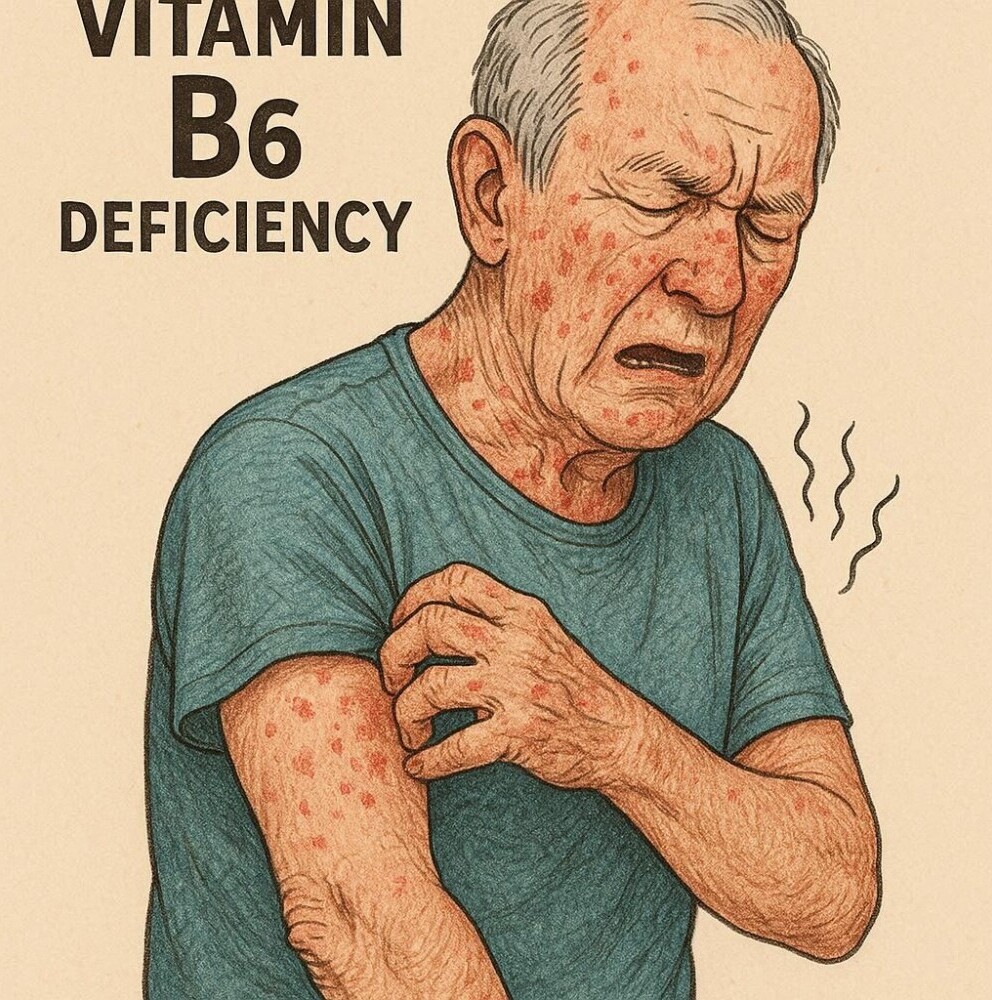
Keeping a healthy level of B6 involves ensuring our diet is rich in foods like poultry, fish, potatoes, and non-citrus fruits. These are all solid sources and can help keep those itchy skin symptoms at bay. Whether it’s whipping up a tasty chicken dish or enjoying some delicious mashed potatoes, there’s plenty of ways to include this vitamin into your meals.
Besides diet, if you find that low B6 levels are a persistent issue, checking in with a healthcare professional might be wise. They can recommend supplements or dietary adjustments suited to your specific health needs. It’s not just about managing annoying symptoms. The broader benefits of balanced B6 levels touch on everything from mood to brain health, making it a vital part of senior health.
Vitamin B6 helps the body produce neurotransmitters, red blood cells, and supports metabolism. Deficiency is less common than B12 or D, but still occurs more often in older populations.
Why is it common in seniors?
- Reduced absorption with age
- Alcohol consumption can interfere with B6 metabolism
- Some medications (like hydralazine or isoniazid) deplete B6
Symptoms of B6 Deficiency:
- Irritability and depression
- Confusion
- Anemia
- Cracks around the mouth
- Weak immune function
Sources of Vitamin B6:
- Poultry, fish, bananas
- Potatoes and starchy vegetables
- Fortified cereals
5. Vitamin C (Ascorbic Acid)
Vitamin C is often the go-to vitamin people think of when tackling colds, but this powerhouse nutrient does much more than just fend off sniffles. For seniors, vitamin C plays a pivotal role in enhancing immune function, which can naturally dwindle as we age.
With vitamin C being a strong antioxidant, it helps protect cells from damage and is critical for maintaining skin health, wound healing, and even the absorption of iron. For older adults, these benefits make it a must-have in maintaining overall vitality. Lack of this vitamin can lead to symptoms like easy bruising and slower healing, pointing out just how intertwined it is with our body’s repair processes.
There’s good news for those who enjoy a vibrant diet. Fruits like oranges, strawberries, and kiwi, along with vegetables such as bell peppers and broccoli, are packed with vitamin C. Incorporating these foods into daily meals is a natural way to ensure your body has what it needs to function better.
If dietary sources aren’t quite cutting it or if there’s a need for an extra boost such as during the winter of flu season, then vitamin C supplements can serve as a handy backup plan. Consulting with a healthcare provider can clarify the best choices based on your individual health profile. Balancing diet and supplementation can provide a robust shield against the immunity challenges that come with aging, keeping you at the top of your game.
While full-blown scurvy is rare today, mild Vitamin C deficiency is not uncommon among older adults who may eat fewer fruits and vegetables.
Symptoms of Vitamin C Deficiency:
- Fatigue
- Slow wound healing
- Easy bruising
- Gum problems
Sources of Vitamin C:
- Citrus fruits (oranges, lemons)
- Strawberries, kiwi, papaya
- Bell peppers and broccoli
6. Folate (Vitamin B9)
Folate deficiency is less frequent now due to fortified foods, but older adults are still at risk.
Why is it important? Folate helps with cell division, DNA synthesis, and preventing certain types of anemia.
Symptoms of Folate Deficiency:
- Fatigue
- Irritability
- Anemia
- Tongue soreness
Sources of Folate:
- Leafy greens
- Legumes (beans, lentils)
- Fortified grains
7. Magnesium
Though technically a mineral, magnesium is essential for hundreds of biochemical reactions, including nerve, muscle, and heart function. Older adults are at greater risk of deficiency due to poor diet and certain medications (like diuretics).
Symptoms of Magnesium Deficiency:
- Muscle cramps
- Fatigue
- Irregular heartbeat
- Anxiety or irritability
Sources of Magnesium:
- Nuts, seeds
- Whole grains
- Dark leafy vegetables
A Comprehensive Approach to Optimizing Vitamin Intake
When it comes to vitamins, each plays a unique role in senior health, but the true magic happens when they work together. Addressing deficiencies isn’t about singling out one vitamin but creating a well-rounded approach that supports overall well-being. This strategy is the key to unlocking better health outcomes as we age.
An effective way to optimize vitamin intake involves starting with a diet rich in a variety of foods that cover a broad spectrum of nutrients. This means not only leaning on fruits, vegetables, meats, and grains but also being mindful of how dietary needs shift with age. If there’s any uncertainty about dietary adjustments, working with a nutritionist can offer personalized insights into meal planning.
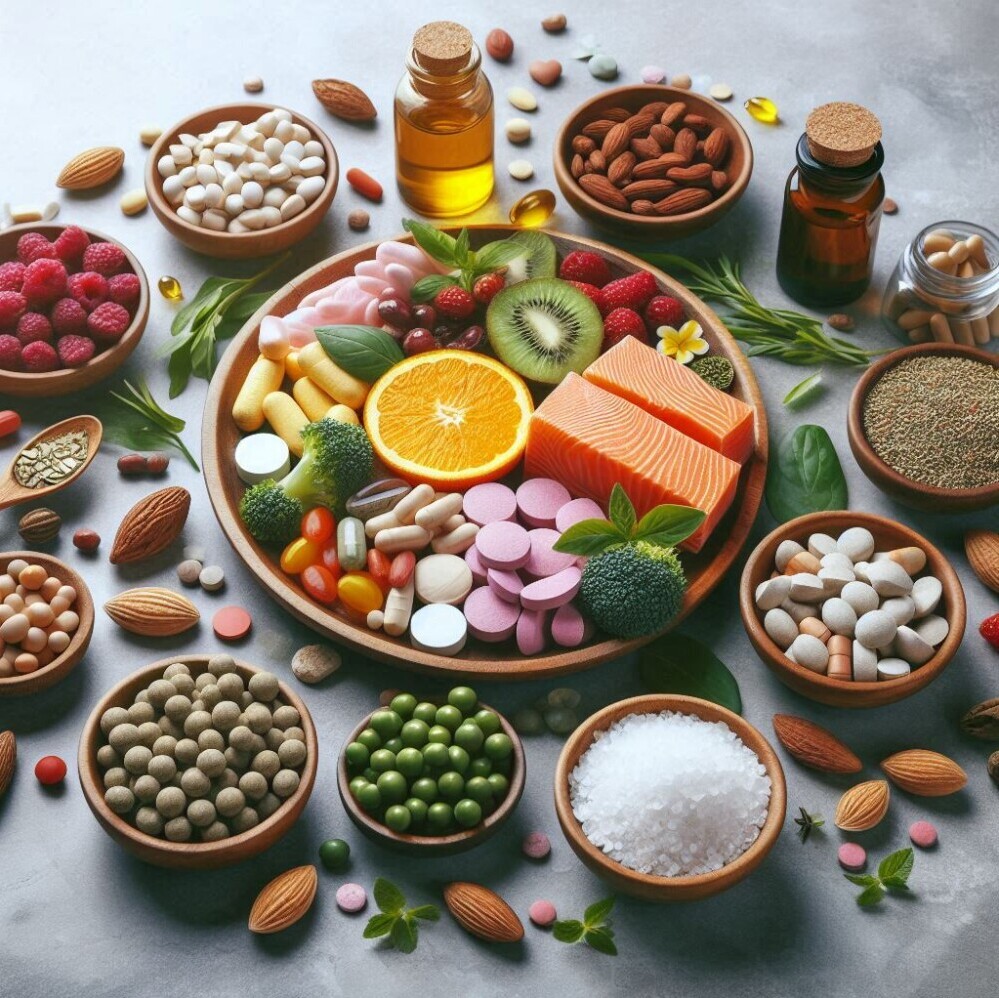
Supplements can be a useful tool for filling gaps, especially for vitamins like D and B12, where natural intake might fall short. These aren’t one-size-fits-all solutions, though—it’s best to seek guidance from healthcare professionals to tailor supplement choices to individual health needs.
For those managing health issues or taking medications, it’s crucial to understand how these can impact nutrient absorption. Routine check-ups can help monitor levels of key vitamins and adjust dietary plans accordingly. This proactive management ensures that your body is adequately supported through life’s later stages.
Emphasizing a comprehensive approach to vitamins sets the groundwork not just for addressing immediate health concerns but for nurturing a long-lasting sense of vitality and wellness. Being informed and making conscious choices about nutrition can significantly enhance quality of life, helping to usher in the golden years with strength and resilience.
FAQs About Vitamin Deficiencies in Seniors
What is the most common vitamin deficiency in the elderly?
Vitamin B12 deficiency is the most widespread among seniors.
What vitamin is often lacking in the diet of older adults?
Vitamin D is often missing, since it relies heavily on sun exposure and isn’t abundant in food.
What vitamin deficiency causes skin itching?
Vitamin B12 deficiency can contribute to itchy skin, and low Vitamin D or B6 may also play a role.
What is the most important vitamin for seniors?
There isn’t just one—Vitamin D, B12, and Calcium are particularly vital, supporting bones, nerves, and immunity.
Preventing Vitamin Deficiencies in Seniors
Maintaining good nutrition in older age requires awareness and proactive choices. Here are key strategies:
Balanced Diet – Focus on whole foods, including lean proteins, fruits, vegetables, whole grains, and dairy or fortified alternatives.
Supplements – Many seniors benefit from daily multivitamins or targeted supplements (Vitamin D, B12, or calcium), based on medical advice.
Routine Screenings – Regular blood tests can detect deficiencies before they cause serious problems.
Lifestyle Factors – Spending time outdoors, staying physically active, and reducing alcohol can improve vitamin status.
Work with Healthcare Providers – Doctors and dietitians can provide personalized guidance, especially when medications are involved.
Conclusions
Vitamin deficiencies in older adults are more common than many realize, but they don’t have to be inevitable. The most frequent issues include Vitamin B12, Vitamin D, Calcium, and B6, with additional concerns about Vitamin C, Folate, and Magnesium. These deficiencies can contribute to fatigue, bone loss, mood changes, cognitive decline, and even itchy skin.
By focusing on a nutrient-rich diet, staying active, and seeking guidance from healthcare providers, older adults can protect themselves from these deficiencies and enjoy healthier, more vibrant years ahead.
Your later years can be bright and full of energy—don’t let hidden vitamin gaps dim them.
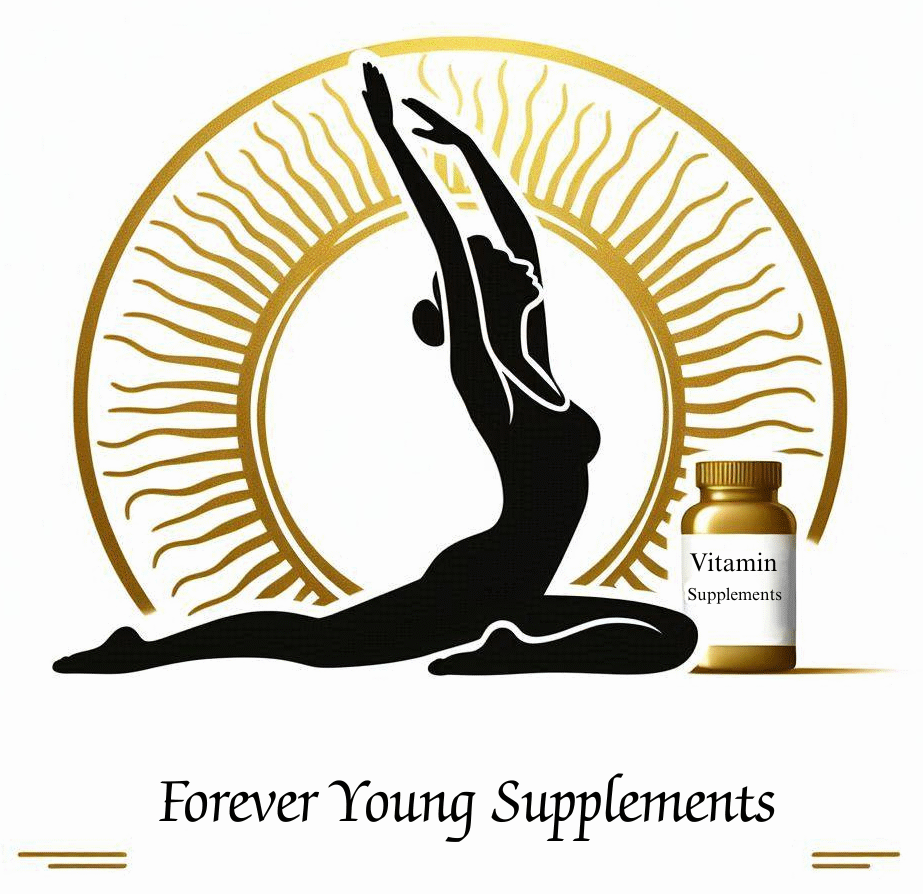
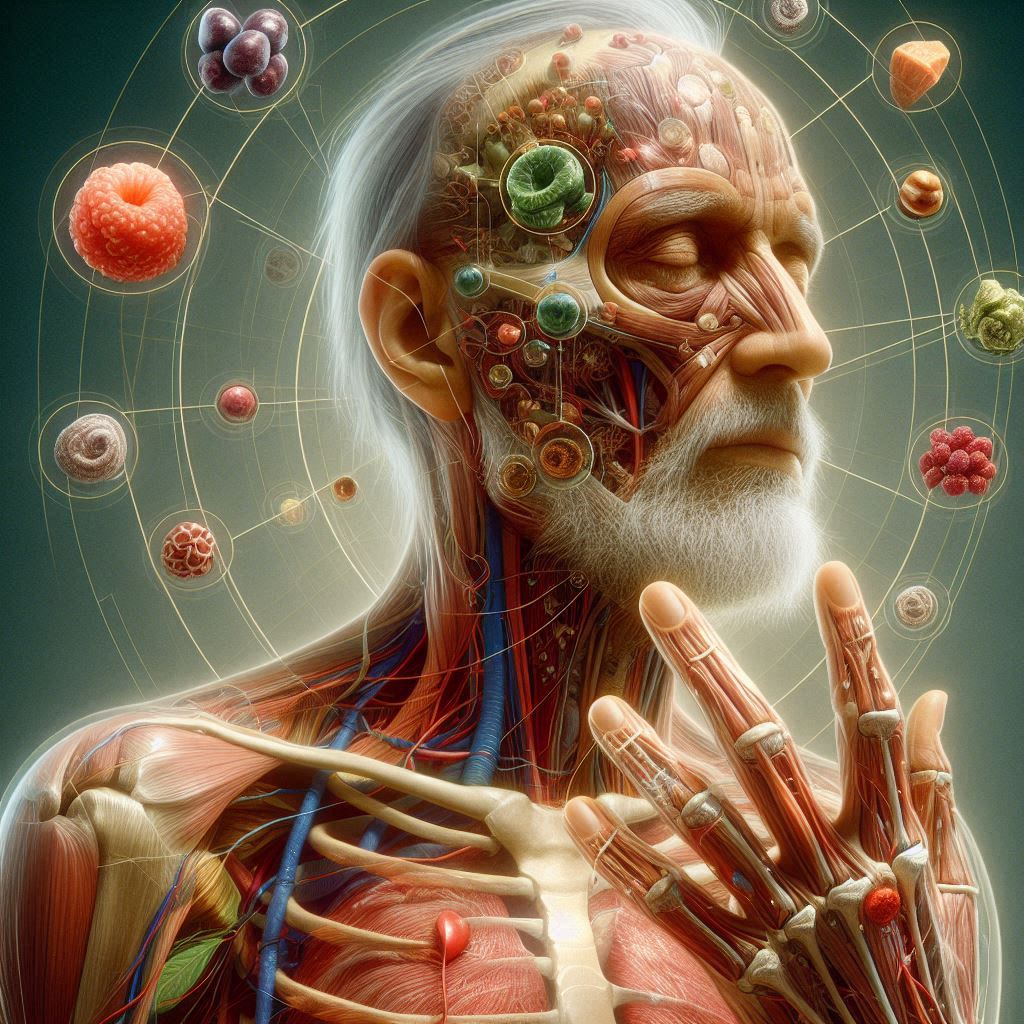
This was really interesting to know. My mom in law suffers from itches every so often, and reading that it could be a shortage of B6 or B12 it makes sense as she has gone off all of these foods lately.
Vitamin D is also a problem. I have a shortage, as well as many of my friends in their 50s, and we all have busy indoor jobs, so we all need to make a plan to get out into the sunshine more.
Supplements definitely help but I don’t think that we can rely on supplements alone as we get older, as we don’t absorb them as well as we used to. The trick I think will be to try and eat as healthily as possible to try and avoid these shortages in our systems.
Thank you so much for sharing your experience. It really highlights how common these issues are. I was also suprised to learn that that both B12 and B6 can play a role in skin related symptoms like itching, especially if intake from diet has dropped. Since absorption tends to decline with age, it is important not only to consider supplements but also to make dietary adjustments where possible.
Vitamin D is another key one, and your point about indoor lifestyles is spot on. Many people, even before reaching their senior years, are running low simply because we spend so much time indoors or use sunscreen consistently (which, while important for skin protection, reduces vitamin D production).
Supplements not being a perfect fix as you correctly mentioned. They can be very helpful for bridging the gap, but our bodies tend to use nutrients best when they come from a variety of food sources. A balanced diet, paired with mindful supplementation and regular check ups with healthcare providers, is really the most effective long-term strategy.
It sounds like you and your friends are already thinking in the right direction and adding more nutrient-rich foods, getting sunlight when possible, and being proactive about health is the best way forward. Small, consistent changes often make the biggest difference over time.